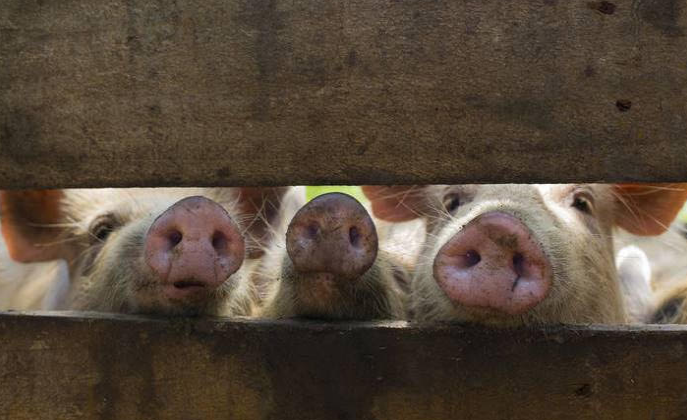Global action needed now to halt spread of deadly pig disease
Pork is the most consumed meat in the world, representing 35.6 percent of global meat consumption. In recent years, African swine Fever (ASF) – which may cause up to 100 percent mortality in pigs – has become a major crisis for the pork industry, causing massive losses in pig populations and generating drastic economic consequences. Currently affecting several countries of Africa, Asia and the Pacific, and Europe, and with no effective vaccine, the disease is not only impeding animal health and welfare but has detrimental impacts on the livelihoods of farmers.

“Today, 51 countries are affected by African swine fever. Amid the difficult situation posed by COVID-19, ASF continues to spread, intensifying the current health and socioeconomic crises,” said Dr Matthew Stone, OIE Deputy Director General for International Standards and Science.
Many countries that are affected by ASF lack sufficient human, financial or technical resources to rapidly detect, respond and contain animal diseases.
“In this globalised world, where diseases can spread rapidly across borders, timely sharing of latest scientific information, international collaboration and notification of ASF are needed to prevent transboundary spread and minimise impact,” said FAO Deputy Director-General, Maria Helena Semedo.
The OIE and FAO call on countries and partners to join forces against this deadly pig disease by adoptingthe new Initiative for the Global Control of ASF.
Building upon the experience of the long-standing collaboration between the OIE and FAO for the management of animal health related risks, the joint Global Framework for the Progressive Control of Transboundary Animal Diseases (GF-TADs) developed the Global Initiative with the aim of fostering national, regional, and global partnerships, to strengthen control measures and to minimise the impact of this complex and challenging disease.
Related news
Related news
After a subdued year, the holiday season is strong
74% of online shoppers, around 3.1 million people, are preparing…
Read more >Battle of the regions: these are the most popular dishes according to Hungarians
Five times the national average of Mexican food is consumed…
Read more >Business-tailored halls help SMEs develop and grow
RaktárAD, a logistics developer with a Belgian-Hungarian ownership background, has…
Read more >



